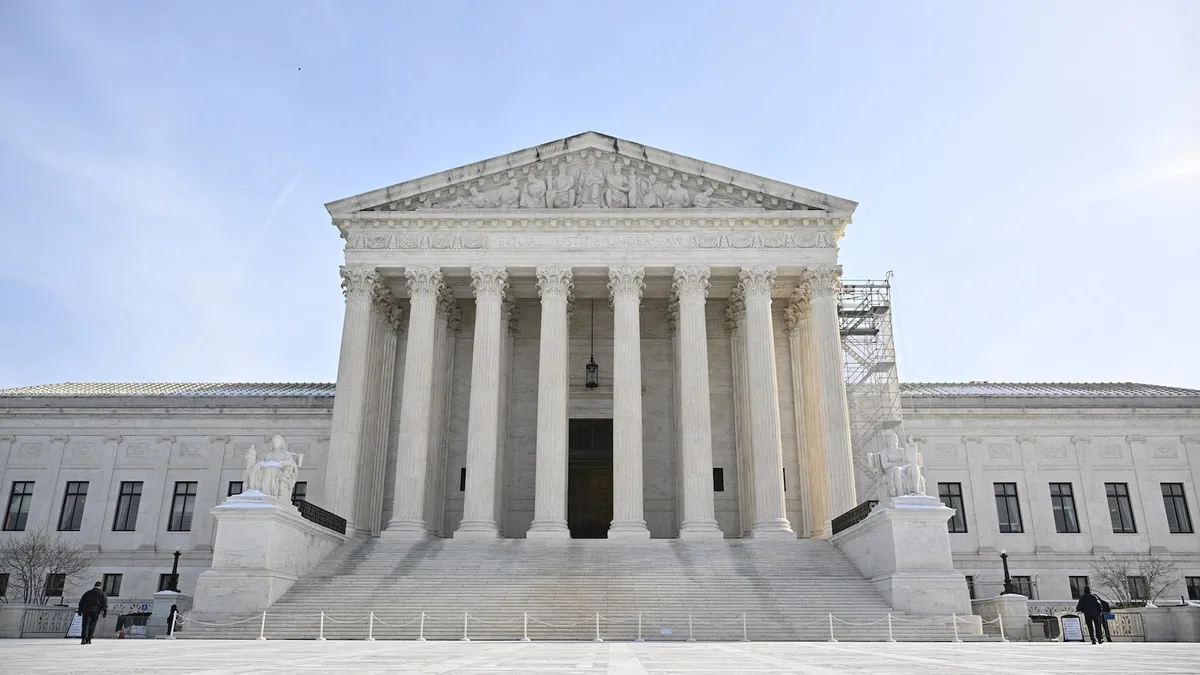
The Supreme Court is set to hear oral arguments on Thursday regarding President Donald Trump's emergency request aimed at rolling back nationwide injunctions that currently block his executive order intended to terminate birthright citizenship. This rare session in May positions the court to potentially issue a ruling by summer on whether Trump can proceed with plans that would restrict U.S. citizenship exclusively to children born on American soil to lawful permanent residents.
This case will also explore the legality of individual district court judges unilaterally blocking a presidential policy across the nation. Trump is seeking to lift judicial orders that are currently preventing significant federal layoffs, funding freezes, and expedited deportation protocols. Historically, courts and the government have interpreted the 14th Amendment's citizenship clause to apply to anyone born in the U.S., irrespective of the parents' citizenship status. The Amendment, ratified post-Civil War, explicitly states that all persons born or naturalized in the United States, and subject to its jurisdiction, are citizens of the United States and of the state in which they reside.
On the very first day of his presidency, Trump signed an executive order asserting that only newborns whose parents possess permanent legal status are considered subject to U.S. jurisdiction and thus eligible for citizenship. This administration contends that birthright citizenship is unconstitutional, a point emphasized by White House press secretary Karoline Leavitt during a February briefing. In response, three distinct groups of plaintiffs, including 22 states, immigrant advocacy organizations, and pregnant women potentially affected by the order, have filed lawsuits to block its implementation.
Legal briefs submitted by attorneys for immigrant advocates argue that birthright citizenship is fundamental to the principle of equality enshrined in our nation's foundation, stating, "all people born on our soil are created equal, regardless of their parentage." According to government data, an estimated 150,000 children are born each year in the U.S. to parents who lack legal permanent residency. The states involved in the litigation warn that these children will be forced to live in uncertainty, constantly at risk of deportation as the legal appeals unfold.
Federal judges from Maryland, Massachusetts, and Washington State, along with three federal appeals court panels, have issued nationwide injunctions that keep Trump's policy in abeyance during the litigation process. These judges have concluded that the policy likely violates constitutional principles and existing high court precedents. Judge John Coughenour of the Western District of Washington remarked during a January hearing, "I can't remember another case where the case presented is as clear as it is here. This is a blatantly unconstitutional order."
The historical context is significant, as the Supreme Court addressed the question of citizenship for children born to non-citizens on U.S. soil in the landmark 1898 case, U.S. v Wong Kim Ark. The ruling determined that such children are indeed Americans under the law. Justice Horace Gray wrote for the majority, emphasizing that the 14th Amendment includes children born in the U.S. to all persons residing within its borders, regardless of race or legal status.
In its current form, the case presents an unusual challenge to the high court. Neither party has formally briefed the justices on the constitutionality of Trump's executive order. Instead, the primary focus is on whether it is appropriate for courts to issue nationwide injunctions against a presidential order deemed egregiously unconstitutional. Ilya Somin, a constitutional scholar at the Cato Institute, noted that the dispute centers on whether such sweeping injunctions should be issued universally or limited to the individuals directly involved in the litigation.
The Trump administration has argued that judges should only block policies in a manner that affects the specific plaintiffs who brought the case, rather than applying a universal ban. Acting Solicitor General Sarah Harris stated in the government's application to the court, "Only this Court's intervention can prevent universal injunctions from becoming universally acceptable." This case could set a critical precedent concerning the use of nationwide injunctions, which have been frequently employed to challenge various high-profile attempts by the administration to reshape federal policies.
As the Supreme Court prepares to deliberate, immigrant advocates, civil rights groups, and Democratic state attorneys general warn that creating a patchwork of policies—where Trump's executive order is enforced in some jurisdictions but not others—would lead to chaos. The legal landscape could become increasingly convoluted, with varying citizenship rules causing confusion, especially in a matter as fundamental as citizenship.
Some legal scholars argue that it may be impossible for the court to address the issue of nationwide injunctions without also resolving the underlying conflict regarding Trump's attempts to redefine birthright citizenship. Constitutional law expert Josh Blackman stated, "They're going to have to address the whole thing... I believe they're going to rule against Trump." A decision from the court is anticipated by early summer, and its implications could shape the future of immigration policy and citizenship in the United States.